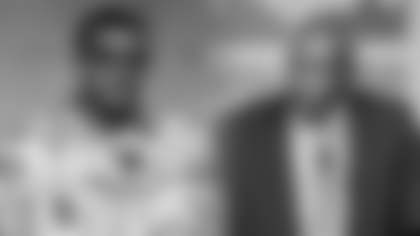It is minicamp season in the NFL, with rookies draftees, veterans and undrafted free agents going through their paces on the field and in (perhaps virtual) meeting rooms. This is an exciting time not just for the players but for coaches and personnel executives as well.
That puts me in mind of the greatest Bronco ever, John Elway, who played for Denver for 16 Hall of Fame seasons, then was general manager for a decade, the only NFL quarterback with Super Bowl titles in each role.
Elway is the greatest Denver athlete ever to only be associated with one city.
But Elway's first minicamp practice did not take place in Denver.
It was the spring of 1983, and all the rookies were gathered in the Mile High City for minicamp. After the first day in Denver was spent conducting physicals and conditioning drills for offensive players, the team planned its first passing drills for Day 2, on May 13, 1983.
But what does it often do in Denver in the spring?
It snowed.
I cannot count the times we all froze while watching spring practices in Denver.
But this was a big-time storm approaching back in 1983, and the fields were unplayable for the Friday practice.
So buses were scheduled and the team was to have its first practice, and hence Elway's, at the indoor facility located at the Air Force Academy in Colorado Springs. Elway was the last player to get on the bus, as he was surrounded by local media for interviews.
When he got on the bus there was just one open seat, next to rookie free agent linebacker Mark DeRose. DeRose had been a local star at the University of Southern Colorado.
DeRose motioned toward the press and said to John, "That part of what you have to do looks really hard. I'm glad I do not have people following me around like that."
Elway, who had been a great star at Stanford and the most ballyhooed prospect since Joe Namath, replied, "I just want to be one of the guys."
They talked some more and DeRose recalls today that "he was such a regular guy. He had such great values. It was easy to see that he had been influenced by his father."
Elway did not treat DeRose like a lesser player, but like a teammate, just one who took a different path to the Broncos.
"He was a first-class guy," DeRose says. "It was easy to see that he would have success in everything he did."
The bus went through the snow and the two players took separate directions at the Academy.
DeRose was a free agent linebacker who would not make the regular-season roster.
Elway immediately demonstrated his arm in every drill and showed why when the lights came on, he could never be "just one of the guys."
The next day, The Denver Post wrote of the "million-dollar arm" and how it was "everything it was expected to be."
"They had to drive about 59 miles to the indoor practice facility at the Air Force Academy to see it, but everybody agreed it was worth the trip," they wrote.
Head coach Dan Reeves, who was watching Elway in person for the first time himself, was as impressed as any of the other onlookers.
"There just aren't many people who God gave that kind of talent to," Reeves said. "He's just got a super arm. You see the velocity, the accuracy and the authority, but what really amazes me is that he puts it where he's aiming it."
He was destined to lead the Broncos to multiple championships and individually to become a Hall of Fame player and the face of the team, city and sport, representing the Mountain Time Zone.
He and I sometimes talked about this when John occasionally questioned his status nationally.
I told him that he had transcended mere greatness and had moved on to legend status.
I referenced the line by the newspaper editor in the movie, "The Man Who Shot Liberty Valance."
It was the actor Gary Merrill who said the famous line, "When the legend becomes fact, print the legend."
That was John Elway, then and now, but his first passes at his first rookie minicamp were thrown in Colorado Springs.















